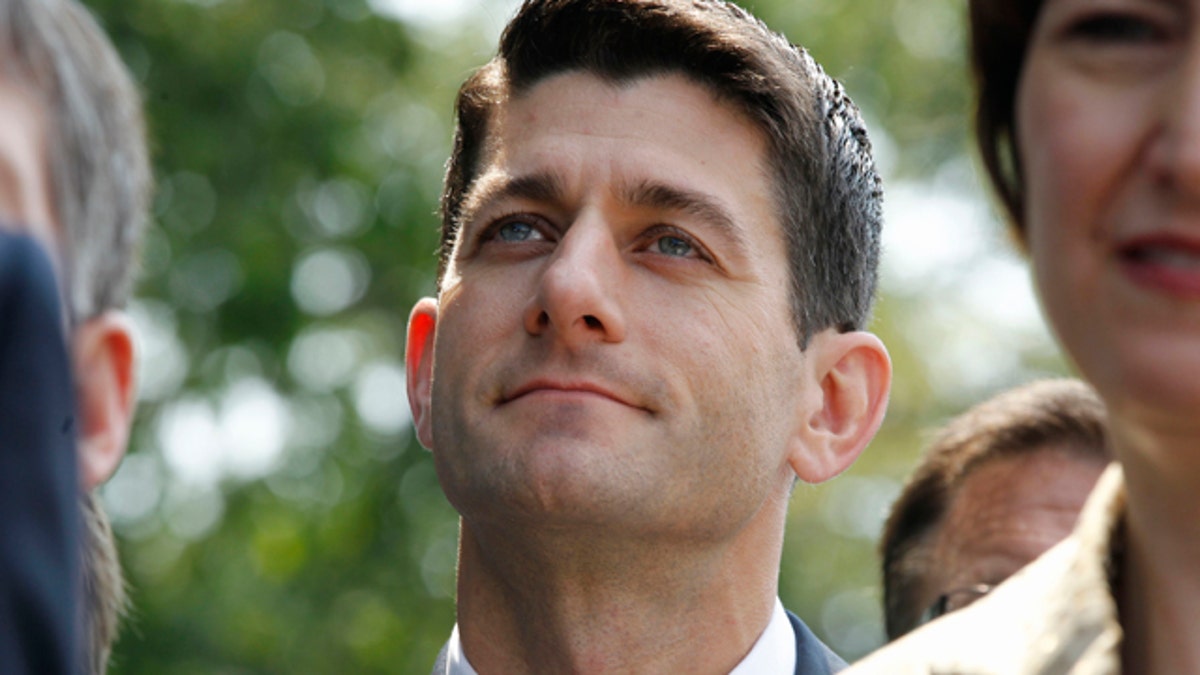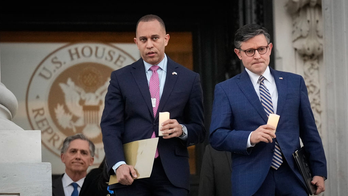
June 1: House Budget Committee chairman Rep. Paul Ryan, R-Wis. listens outside the White House in Washington. (AP)
The debt talks have taken up reform of entitlements such as Medicare, because that's where the money is. Budget Committee Chairman Paul Ryan says, "The failure of Washington to be honest about Medicare, Social Security, and the federal budget threatens the economic security of Americans."
And some Democrats agree. Chris Van Hollen, D-Md, says, "We are in fundamental agreement that Medicare and Social Security require some reforms to be strengthened. We are in very big disagreement as to how to do it."
That's an understatement. Democrats favor tax hikes within Social Security and Medicare, as well as increasing income taxes.
But Budget Committee Chairman Paul Ryan argues part of the problem in Medicare is the new health care law --- which claims savings that he doubts will materialize.
Rick Foster, the chief actuary of Medicare has the same concern. He insists, "There is a lot of evidence that suggests some of these payment provisions will not be sustainable in the long range."
The new law, for instance, will pay providers, including doctors, lower and lower rates. Foster said over time, that could put 40 percent of all providers in the red, raising questions about whether they'd continue to treat Medicare patients.
As Foster puts it, "If at some point our payment rates to providers become less of or significantly less than their cost of providing services, they either will be unwilling or unable to continue providing services."
Last year, 51 percent of Medicare's cost was taken out of general revenues, meaning half the cost of Medicare was paid by borrowing money, which is why it’s part of the debt talks.
Social Security does not rely on general revenues, only dedicated taxes. But by 2035, it will run short of money and, by law, it will be forced to cut benefits across the board by 23 percent.
There are many reform proposals for both programs, but Democrats were reluctant to talk about any of them, preferring instead to talk about taxes.
"It's so important from our perspective to have balance and also look at some, you know, the revenue picture," says Van Hollen. He adds, "And look at some of the folks that did get big tax breaks not that long ago."
So two things are clear. One, entitlement programs are in trouble. And two, the discussion of them is very much like the discussion on the debt ceiling -- spending cuts versus increased taxes.




